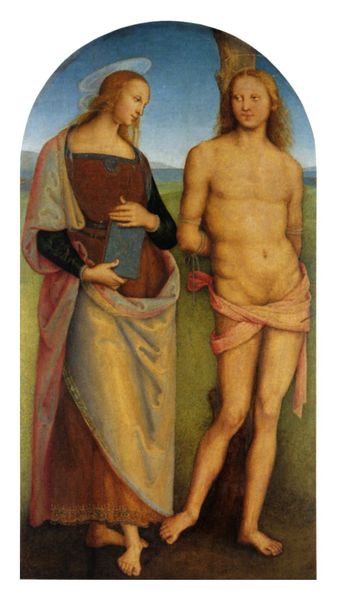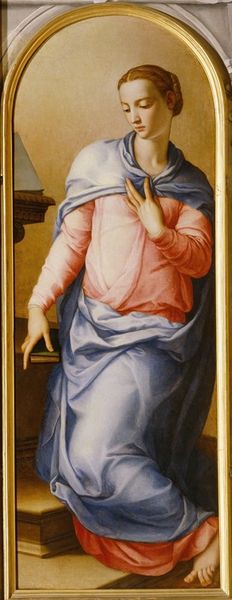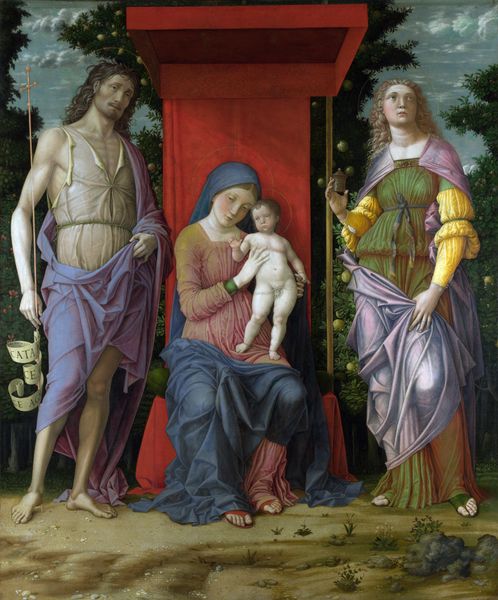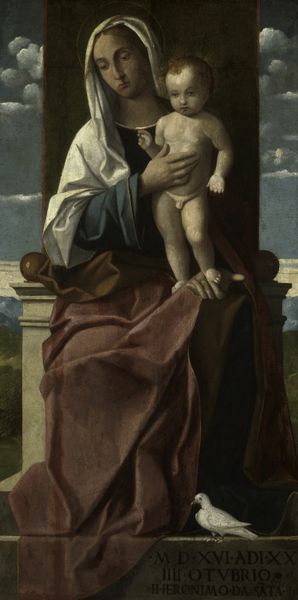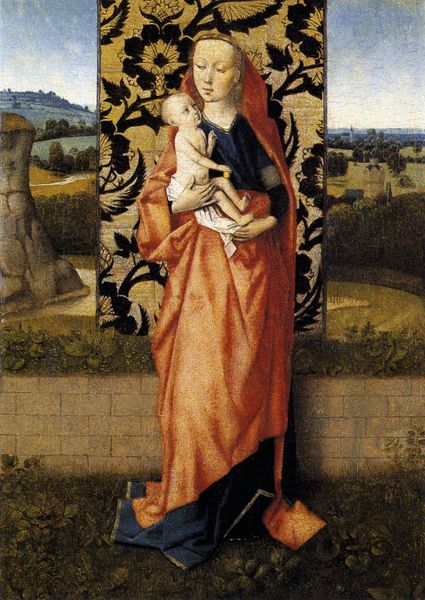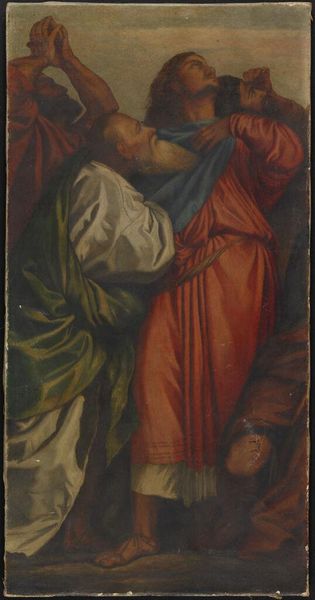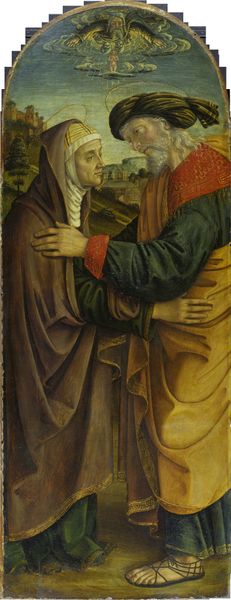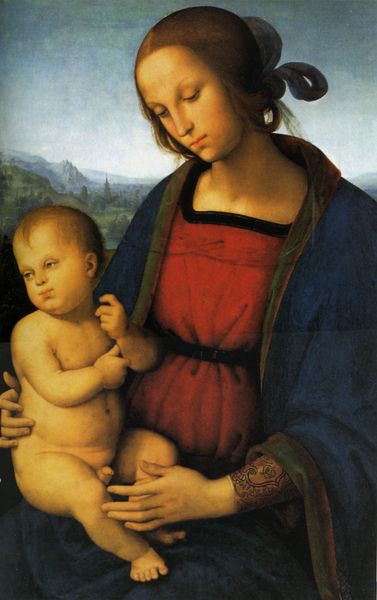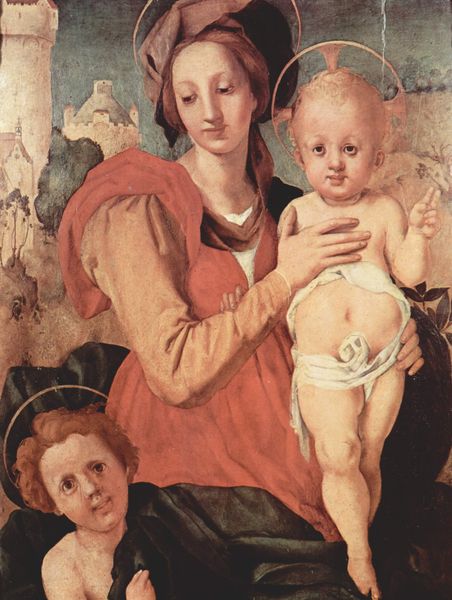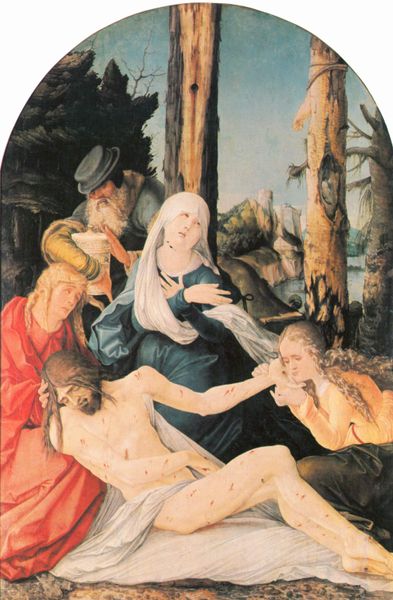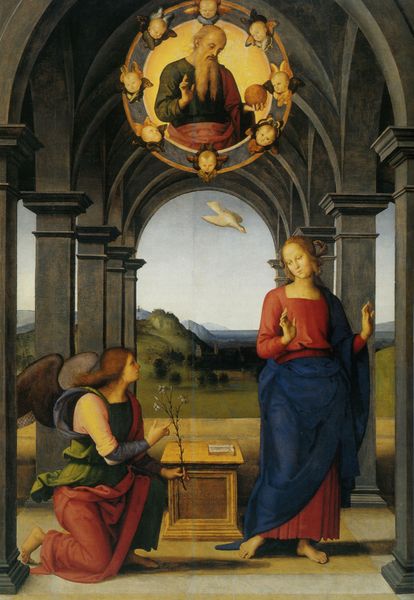
tempera, painting
#
portrait
#
tempera
#
painting
#
figuration
#
christianity
#
history-painting
#
italian-renaissance
#
portrait art
Copyright: Public domain
Pietro Perugino painted St. Jerome and Santa Maria Magdalena with oil on panel, sometime between 1500 and 1524. The characteristically soft, almost smoldering effect results from layers of translucent glazes, built up to create a sense of depth and luminosity. The colors in the artwork are a direct outcome of pigments available at the time, derived from minerals and organic sources. Ultramarine blue, made from lapis lazuli, would have been especially prized. But there’s a social dimension here too. Oil painting offered Perugino the opportunity to portray a certain version of beauty, which persists to this day. The even tones of the skin are due to the artist’s mastery of the medium, but are also indicative of a cultural preference. This is further reinforced by the figures, set in a constructed and cultivated landscape. Ultimately, appreciation of this work lies in the recognition of both artistic skill and the power of these images to shape cultural values.
Comments
No comments
Be the first to comment and join the conversation on the ultimate creative platform.


